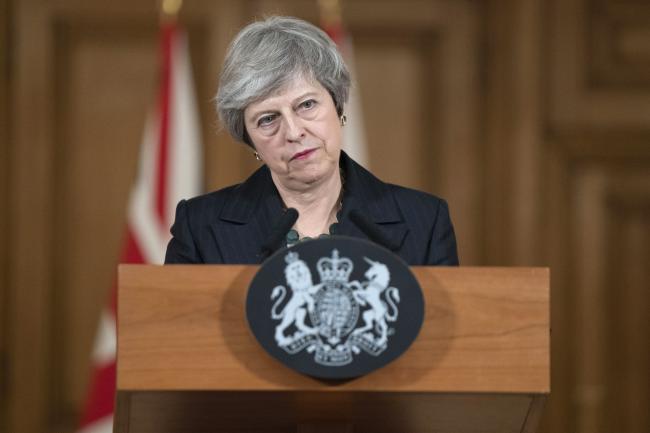(Bloomberg) -- The U.K.’s hardline Brexit backers are making their move. If they get their way on the U.K.’s new trade arrangements, they’ll face a test of gravity.
Many of those plotting to oust Prime Minister Theresa May also favor reverting to basic World Trade Organization rules -- thereby creating new barriers with Europe -- arguing that it would supercharge economic activity with other, faster-growing countries further afield. That’s at odds with the theory of trade gravity, which states that the level of commerce between two countries is in proportion to their size and proximity.
The idea is that a twofold increase in the distance between countries leads to a corresponding decline in trade volume by half. According to research by the London School of Economics, it helps explain why the U.K. has far greater trade with Germany than Canada -- a nation with which it shares more historical and cultural links.
It’s also the reason -- along with its current membership in the single market that aims to remove all barriers -- why the U.K. sent 236 billion pounds ($300 billion) of total exports to the EU in 2016. That compares with sales of 100 billion pounds to the U.S., an economy of similar size to the combined countries of the bloc.
When it comes to the new relationship, trade gravity is a key dividing ground between those economists who predict it will be difficult for Britain to replace its commerce with the EU with other, faster-growing markets after Brexit, and the smaller group who espouse the benefits of a clean break.
Earlier this year, pro-Brexit advocates Jacob Rees-Mogg and Boris Johnson -- the most prominent critics of May’s plans -- presented research from the anti-EU Economists for Free Trade which dismissed the gravity model and argued that the risks had been overstated. In a series of tweets on Monday, U.K. lawmaker John Redwood returned to the theme, pointing out that non-EU trade had been growing at a faster rate than within the bloc.
The EU currently accounts for a just under half the U.K’s trade, and research from Bloomberg Economics -- using a gravity model -- showed that striking deals with the U.S., India, China, Australia and New Zealand won’t be enough to compensate for the economic losses from leaving the world’s largest single market.
The gravity theory extends to trade in services as well as goods, research from Jonathan Eaton (NYSE:ETN) and Samuel Kortum, joint recipients of the 2018 Onassis Prize in International Trade, showed in September. That has particular implications for the U.K., where services make up about 80 percent of the economy.
Given that Europe is both big and close, most economists would argue that the U.K. will never get a better Brexit trade deal than the one it already has as an EU member.
The idea of trade gravity “is just a statement of fact,” said Grant Lewis, an economist at Daiwa Capital Markets and a former Treasury official. “The only true free-trade agreement is that within the EU, where you have no regulatory barriers and no trade barriers -- that doesn’t exist anywhere else.”
